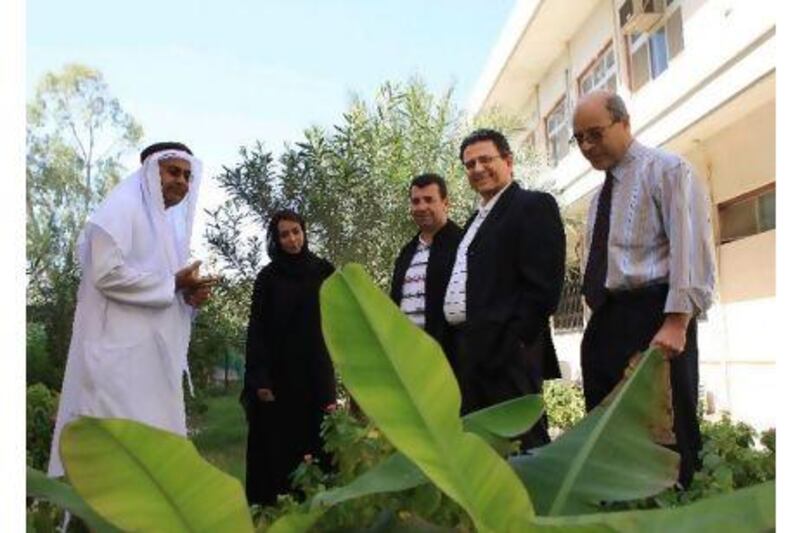Surveys and interviews involving more than 1,500 Emirati and expatriate families are expected to give policymakers useful new insights into some UAE aspects of the world's food supply issue.
The field research — showcased last night at the UAEU Education & Research 2011 event at Emirates Palace — was conducted by the Department of Agribusiness and Consumer Sciences at UAE University (UAEU). The findings, addressing everything from rising prices to the acceptance of organic products and genetically modified foods, should provide some guidance for Government strategies.
Around the world concern about food supplies and prices, a growing supply-demand imbalance for fresh water resources and public emphasis on food quality and safety have all put food security high on the policy agenda in most countries in recent months.
Food prices have recently climbed to near-record levels, according to the UN Food and Agriculture Organisation, and the surge in oil prices amid regional unrest will not help. The statistics are worrisome for the UAE, which imports as much as 85 per cent of its food.
The UAEU data sheds light on local food production and consumption patterns, and on how changes in household incomes affect spending on certain food groups, said Dr Mohammed al Gheblawi, chair of the university department.
Studies on production by local fishermen and the capacity of food and water reserves have not only helped policymakers identify and understand consumption patterns and the role of agriculture, but have also been published in internationally peer-reviewed journals.
"There is the issue of using our own natural resources, whether the abundance of fish in the ocean or dates from the palm trees, but this is also about our role in the global market," Dr al Gheblawi said.
The department's research has found, for example, that people who are older, well-educated or have more individuals in their families consumed fewer fats, oils and sweets. Emiratis consumed more dairy than expatriates, while consumers with higher incomes and those who suffered from cholesterol and heart diseases ate more meat, poultry, fish, dry beans, eggs and nuts.
Income and household size are critical factors affecting the amount of money spent on food items such as seafood and meats, the research has found.
Data has also shown that the UAE's population growth has led to an increase in the country's food consumption, leading Government officials to propose plans for adequate reserves of food and water in case of a national disaster or crisis.
"It is a question of choices, as well as the availability of resources related to climatic factors, what to produce and how to produce it, and how to produce enough food for the people in the UAE," Dr al Gheblawi said. "We will never have 100 per cent food security, of course."





